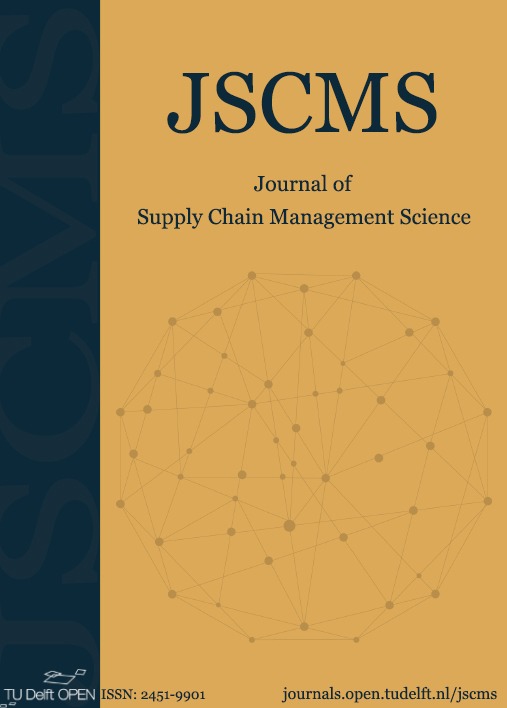Lead-time-based freight routing in multi-modal networks considering the Physical Internet
DOI:
https://doi.org/10.59490/jscms.2023.7183Abstract
This paper addresses the problem of optimizing the transport of goods in the Physical Internet (PI) framework in a multi-modal setting using a multi-objective mixed-integer linear programming (MILP) approach. The model is specifically designed to meet the requirements related to modular shipments and PI-hubs, and in particular, determines the allocation of modular shipments to each transport mode in an intermodal setting. In doing so, parallel direct connection via road, the delivery times and the transportation costs are minimized. The model is applied to a numerical case study, to test its effectiveness to enhance freight transport efficiency within the PI framework, by exploiting, in particular, all the capacities of the available vehicles. In addition, a sensitivity analysis is conducted on some model parameters, to test its reaction to changes in the supply system and in the objective priorities. Results show that all the shipments are effectively transported between the origin and the destination terminals, they are divided into modules when necessary, and the selected transport modes, allocation strategy, and delivery times vary accordingly to the objective priorities.
Downloads
Published
How to Cite
Issue
Section
License
Copyright (c) 2023 Journal of Supply Chain Management Science

This work is licensed under a Creative Commons Attribution 4.0 International License.
JSCMS is licensed under a Creative Commons Attribution 4.0 International (CC BY 4.0) licence. The license means that anyone is free to share (to copy, distribute, and transmit the work), to remix (to adapt the work) under the following conditions:
- The original authors must be given credit
- For any reuse or distribution, it must be made clear to others what the license terms of this work are
- Any of these conditions can be waived if the copyright holders give permission
- Nothing in this license impairs or restricts the author's moral rights


